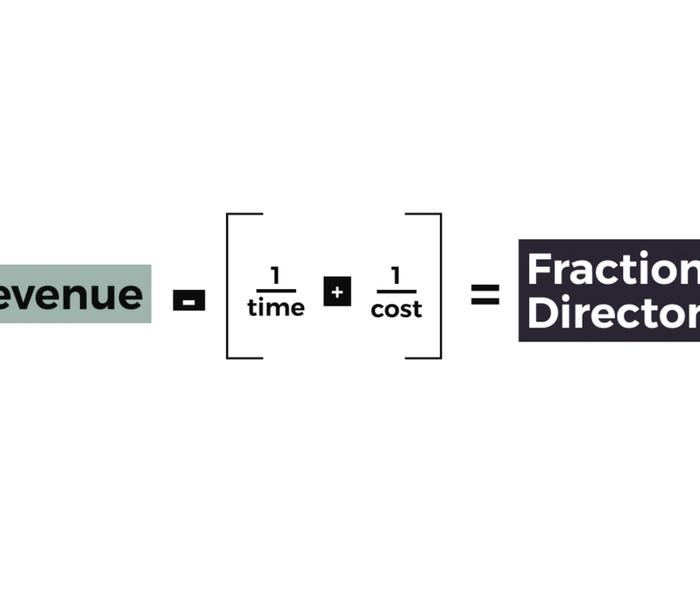4 Lessons from Adopting a User-Writer Documentation Approach and Why You Should, Too

Who understands the ins and outs of your product better than the users?
Have you ever noticed how users own this innate understanding of the nuances of your product? They understand its functionalities, complexities, and quirks in a way no external entity ever could. There’s an intimacy, a depth of understanding, that only comes from experiencing a product firsthand. The product user holds the key to unlocking the true potential of your product's documentation.
We adopted the 'user-writer approach' when launching our documentation service at Hackmamba. Our approach was onboarding and integrating a dedicated product user and writer into a product team. Our writers will collaborate with engineers, designers, and product managers to create documentation that perfectly synchronizes with the product vision and user needs.
We understood that outsourcing documentation to entities unfamiliar with a product risks losing that personal touch. How can someone outside genuinely capture the essence of what your product offers? It’s more of describing the taste of a dish you’ve never consumed—a futile endeavor lacking depth and authenticity.
Today, we've successfully onboarded a handful of our technical writers to help clients with their documentation needs, and here are the lessons and insights we've gleaned from our onboarding experience:
- Only users truly understand product features.
- User-writers beat agency content any day.
- Don't outsource to those unfamiliar with your product.
- Even one dedicated user-writer makes a huge difference.
Only users truly understand product features.
Consider reading content penned by someone who has faced the same challenges, found solutions, and transcended the depth of your product. Users-turned-writers possess that unique ability to create authentic connections. Their words are shared experiences, empathy, and guidance stemming from their intimate understanding of user needs. This understanding diffuses throughout their writing, creating a bridge of connection that engenders trust and loyalty.
When users interact with documentation created by user-writers, they feel understood. Their experiences are validated, their challenges acknowledged, and their aspirations recognized. This validation elicits a sense of belonging, a connection to a community of product users who share their journey.
Before adopting the user-writing approach, Hackmamba often encountered difficulties with clients due to technical content that lacked resonance and failed to connect genuinely with users. The content, while informative, fell behind on the personal touch and relatability that comes from firsthand experience.

You know the heart of User-Centered Design (UCD) lies in recognizing that users attain an unmatched understanding of product peculiarities through continuous interaction with the product. Product users are never passive consumers but active participants whose lived experiences shape a profound knowledge of a product's features.
Adopting user-driven documentation marked a turning point, ushering in positive client feedback. This shift in approach has enhanced the quality of Hackmamba's documentation and strengthened client relationships.
In essence, personal experience forms the bedrock of relatability. Users look beyond information to crave a connection. How much more impactful is documentation when it's laced with personal anecdotes, experiences, and insights? It's the same as conversing with a friend who's been there, done that, and is now guiding you through.
User-writers beat agency content any day.
While Hackmamba operates as an agency, we have embraced a user-writer or account-based approach that sets us apart from traditional agencies. This strategic move has proven to be a game-changer, delivering content that resonates with users and drives product adoption.
Product consumers who strongly understand your product and features will create better content than any individual/agency writing based on what they read online. Even an interview with the CTO or product team can't make up for the experience of using the product and features. Technical content pieces often lacked resonance because they were written by people who understood the product from an abstract standpoint but lacked the personal experience as users to create a better connection with your customers through content.

Your target audience can discern the difference between generic content and content that originates from firsthand experience. This authenticity elicits trust and connection, encouraging end-users to engage more intently with the product. The Social Presence Theory suggests that the degree to which a medium can convey social presence influences the effectiveness of communication. By their firsthand experience, user-writers become conduits of social presence in the documentation. They embody the product, allowing end-users to connect with the content on a personal level.
Don't outsource to those unfamiliar with your product.
The temptation to outsource technical documentation to external agencies may seem enticing, particularly when faced with time constraints or resource limitations. However, entrusting this crucial task to those unfamiliar with your product is a recipe for disaster.
Outsourcing technical documentation often leads to a disconnect between the product and its documentation. The external writers, lacking firsthand experience, struggle to grasp the nuances and subtleties that make your product unique. This results in documentation that feels generic, devoid of the authenticity and relatability that your audience seeks.
The risks of outsourced documentation extend beyond user experience.
Without a deep understanding of your product's architecture and functionality, external writers can introduce errors and inconsistencies in the documentation. This can lead to user frustration, support overload, and a tarnished reputation for your product.

In contrast, Hackmamba’s user-writer approach to onboarding experienced technical writers to your team offers a far more secure and rewarding system. We integrate experts who become an integral part of your product development process, immersing themselves in the product's evolution and gaining a true appreciation of its capabilities.
Integrating technical writers into your team ensures that documentation is not an afterthought but an integral part of the product lifecycle. Their insights and expertise can influence product design, identify potential usability issues, and create a more cohesive user experience - all within your budget. In essence, you enjoy the best of both worlds.
Even one dedicated user-writer makes a huge difference.
Surprisingly, adding just one dedicated user-writer to your documentation team can bring about remarkable changes. Their insights, drawn from personal use and understanding, have the potential to transform your documentation. Their unique blend of technical know-how and empathetic understanding resonates enormously with end-users, making your product more relatable and accessible.
The charm of user-writers lies in their ability to create authentic connections. They speak the user's language, understand their pain points, and guide them through solutions, all while speaking from a place of genuine experience. This relatability keeps your audience engaged, builds trust, and turns them into loyal advocates for your product.
Summary
We learned that the product end-users understand product features and functionalities better than anyone else. Their experiences give them an intimate understanding of the product's complexities and quirks that external writers do not have. This allows them to create documentation that resonates with users and addresses their needs.
Personal product experience yields a deeper connection with end-users. Documentation written by someone who has experienced the product firsthand provides a sense of authenticity and relatability that resonates with consumers. This connection fosters trust, encourages engagement, and turns users into loyal advocates for the product.
Both small and big teams are taking advantage of our unique approach to documentation. You can start with a 1-month trial and money-back guarantee. See you on the other end.
About the author
Henry Bassey spearheads Content Strategy and Marketing Operations at Hackmamba. A strong advocate for innovation and thought leadership, his commitment permeates every content he handles for clients at Hackmamba.
Related Blogs


Henry Bassey
Fri Mar 08 2024
Google's Core Update: Is AI Content Doomed? A Guide for Content Creators
Read Blog


Henry Bassey
Sat Feb 17 2024
Fractional Director of Content Marketing: When and Why You Need One
Read Blog


Chidi Eze
Fri Feb 09 2024
Top 5 Open-Source Documentation Development Platforms of 2024
Read Blog

